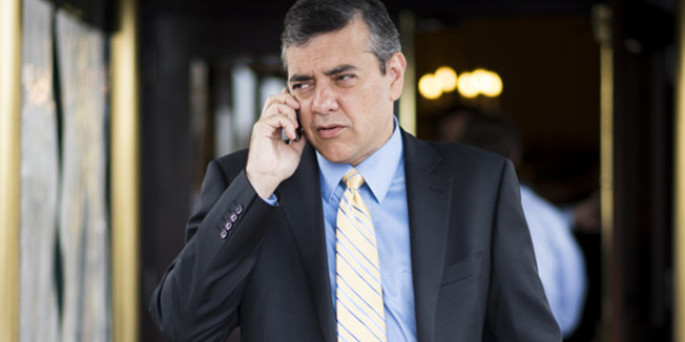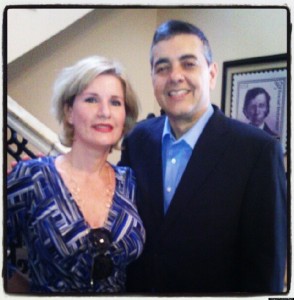
Ex-Congressman Rivera loses ‘last ditch’ move to avoid huge campaign fine
Francisco Alvarado / Florida Bulldog
In a severe rebuke of David Rivera, U.S. District Judge Marcia Cooke rejected the former Miami Republican congressman’s “last-ditch effort” to dodge a $456,000 judgment against him tied to his decade-old federal elections campaign violations.
On March 24, roughly a year after ruling in favor of the Federal Elections Commission, Cooke denied Rivera’s motion to dismiss the elections watchdog agency’s lawsuit against him on the grounds that he never received mail notices he was going to be sued, and that a five-year statute of limitations had expired when the complaint was filed on July 14, 2017.
“It is disingenuous and smacks of hypocrisy that Defendant David Rivera – a former U.S. Congressman – now insists that the Court conveniently ignore his multiple discrete violations of a federal law in favor of his strained reading of a statute of limitations and his interpretation of the FEC’s claims against him,” Cooke wrote in her denial order. “Defendant’s argument also lacks legal support.”
Cooke also described Rivera’s motion, filed on March 31, 2021, as “what appears to be a last-ditch effort to avoid a final judgment being entered against him.” The judge admonished Rivera for “his attempts to subvert justice and avoid the repercussions of his unlawful acts throughout the underlying FEC administrative proceeding and the proceedings before this court.”
The FEC case is now administratively closed and Rivera is on the hook for the six-figure judgment – which is among the top 15 largest civil penalties ever imposed by the FEC.
Rivera’s cell phone voicemail was full and not accepting messages. He did not respond to a text requesting comment and detailing Cooke’s assertions against him. Rivera’s lawyers Roy Kahn and Jeffrey Feldman did not respond to requests for comment.
RIVERA AND HIS ‘RINGER’ CANDIDATE
When Rivera, a Cuban American, was gearing up to defend his congressional seat 10 years ago, he secretly funded candidate Justin Lamar Sternad in the Democratic primary as a way to weaken his eventual 2012 general election opponent, Joe Garcia, according to Cooke’s order. It didn’t work. Rivera lost to Garcia.
In April 2012, Rivera initiated the scheme when he met with his associate, Miami campaign consultant Ana Sol Alliegro, and directed her to approach Sternad with an offer to provide financial support to his primary campaign, the judge’s order states. At Rivera’s direction, Alliegro spent the next few months acting as an intermediary, transmitting funds to Sternad, the Sternad political action committee, and vendors providing services to Sternad’s committee. Rivera funneled nearly $76,000 to the Democratic ringer candidate.

The FEC accused Rivera of illegally making contributions in the name of another person when he made multiple cash payments to third-party vendors providing services to the Sternad campaign from approximately July 14, 2012 to August 8, 2012. Rivera also took steps to hide his identity and directed others not to disclose him as the true source of those cash payments, the FEC complaint states.
Rivera’s illegal activity was also the subject of an investigation by the U.S. Attorney’s Office of Southern Florida. Sternad and Alliegro pleaded guilty to criminal charges for their roles in the scheme, but Rivera has never been charged with a crime and has long denied wrongdoing.
After losing in 2012, Rivera mounted an unsuccessful run for the Florida Legislature four years later. In 2016, he lost to Democrat Robert Ascenio by one point.
In 2020, he was elected to the Miami GOP’s executive committee despite revelations he had business dealings with Venezuela’s state-owned oil monopoly, PDVSA. A separate lawsuit showed that his consulting firm was awarded a $50 million contract from Venezuela’s socialist government.
JUDGE COOK UNIMPRESSED
In her 12-page order, Cooke systematically took apart Rivera’s claims asserting why the FEC’s lawsuit should be tossed because the statute of limitations had expired and because he didn’t receive notice that he was going to be sued.
In his motion, Rivera argued that his campaign violations all took place on July 10, 2012, which would mean the FEC filed its 2017 lawsuit four days after the statute of limitations expired. Cooke didn’t buy it.
“The Court notes, moreover, that it is not impressed with Rivera’s argument that his discrete repeated violations should be treated as a single incident that accrued on July 10, 2012,” Cooke wrote. “While this argument may be a convenient position for Rivera to take, the Court finds that it lacks legal merit and would create an untenable legal precedent.”
Cooke also found Rivera’s claims that he didn’t receive FEC mail notices incredulous, noting the watchdog agency “presented ample evidence demonstrating” it mailed the required documents to the ex-congressman at his physical address, as well as to the same email address in which he received other electronic correspondence from the FEC that he responded to.
Rivera alleged he didn’t receive an April 28, 2017 probable cause notification letter, an email forwarding him the letter electronically and a proposed conciliation agreement.
RIVERA’S CONVENIENT CLAIMS
“Indeed, the FEC has even provided the court with evidence demonstrating that a person at the defendant’s physical address refused delivery of the UPS package containing the FEC’s notice materials,” Cooke wrote. “The evidence further demonstrates that those documents were also emailed to the defendant at the email address that he had been using to respond to the FEC’s prior communications; however, not surprisingly, the defendant never responded to that particular FEC email.”
Cooke accused Rivera of “conveniently” claiming that he did not live at the address the FEC was sending materials to because he was purportedly residing between “Haiti, Dominica, and Central Florida” from April to June 2017.
“The Court also finds it telling that the defendant did not provide an updated address to the FEC for receipt of correspondence related to the FEC’s investigation despite his full knowledge that he was being investigated for violating [campaign finance laws,” Cooke wrote. “Nor did the defendant employ the use of a mail forwarding service to ensure that he received important documents such as the FEC’s pre-suit notice documents during his purported foray abroad.”
Cooke noted that Rivera didn’t offer any explanation as to why he did not receive the pre-lawsuit notices the FEC emailed him despite “evidence reflecting that he received other emails from the FEC.”
“Cumulatively, these omissions on the defendant’s part leave the court with the inescapable conclusion that the defendant is, once again, being less than honest and forthright,” Cooke wrote. “It must be noted that the court finds the defendant’s pre-suit notice arguments disconcerting.”
Cooke concluded that, based on evidence, “it is quite apparent” Rivera “actively took steps to avoid the multiple notices” sent by the FEC via regular mail and email. “At worst, the defendant is attempting to ‘game the system’ or, at best, ‘have his cake and eat it too,’” Cooke wrote. “The fact is that this court cannot and will not countenance such behavior. Indeed, doing so would serve to erode the rule of law and encourage others to follow the ‘shining’ example that the Defendant – a former U.S. Congressman – has set through his brazen actions.”

